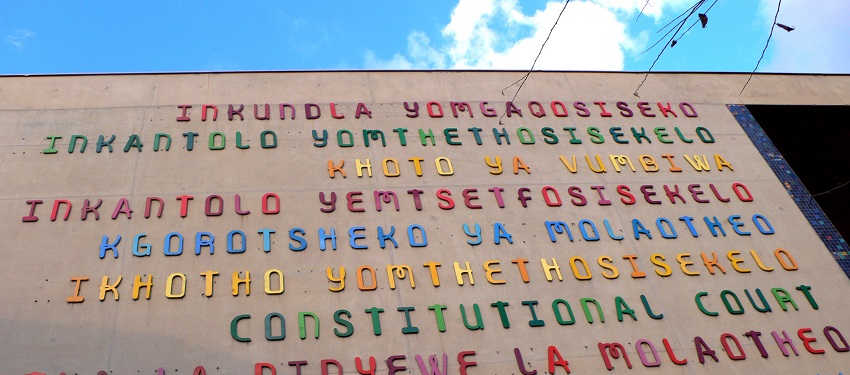[Due to travel disruptions, Thursday’s roundtable discussion and reception have been canceled. We apologize for any inconvenience. The conference will continue as planned on Friday.]
The Bernard and Audre Rapoport Center for Human Rights and Justice at the University of Texas School of Law is pleased to announce its tenth annual conference, to take place February 13-14, 2014. The conference is free and open to the public. Registration is strongly encouraged.
Many, possibly most, scholars who define themselves as working on human rights are sharply focused on international law, international courts, and international or at most transnational actors. The domestic political arena enters the picture only as the target of all this international activity, or at most as the place that conditions the likely success of that activity. And yet, at the heart of much of the politics of human rights and social justice in the twenty-first century is something we could call human rights constitutionalism. In human rights constitutionalism, the anchoring documents are not treaties but constitutions – into which treaty-based rights are often imported, either directly or by reference, or even by judicial interpretation. The main judicial spaces are not in The Hague or Arusha, but rather in Supreme Court palaces and local tribunals – even though these judges are citing or interpreting rights that can also be found in international law. The key players are not, or at least not only, international movements and organizations, but local constellations of politicians, civil society organizations, judges and lawyers, and activists – although they often intersect with a global politics of human rights.
At the heart of this phenomenon lies a paradox – constitutions are often understood to capture the essential identity and commitments of a particular people, while human rights are often understood to express that which is most universal. And yet both constitutionalism and human rights are ways to limit and tame the nature and possible outcomes of social conflicts and political struggles. Our goal is to better understand some of the ways in which the less rooted, less local notions of human rights came to be seen as the best way to anchor a local politics of social justice; and to explore the consequences of this move for the goals embedded in human rights treaties and constitutions.
The phenomenon does not appear to be limited to any one region or any one political impulse. In some cases human rights constitutionalism may be the result of a conscious attempt to merge the global and the local through the constitutional incorporation of international human rights. In others, it may simply be a matter of borrowing language contained in international rights regimes in order to express purely local aspirations. Either way, we see a proliferation of human rights language in constitutional regimes. Political projects of all stripes – from Islamic democracy movements in South Asia or the Middle East, to twenty-first century socialism or post-transition democratization movements in Latin America – are rewriting national constitutions and incorporating the language of rights into their texts.
The redrafting, in many cases, focuses on both structure and rights. In addition to the traditional mechanisms of representative democracy and the core civil and political rights, new constitutions include mechanisms for additional (sometimes direct) political participation, greater checks and balances, and stronger judiciaries, as well as social, economic, and cultural rights. As noted earlier, very often the new provisions are lifted directly from international human rights agreements; in some cases, those agreements are explicitly incorporated by reference. Mechanisms of participation and self-government are sometimes justified by reference to cultural rights, and stronger judiciaries are seen as ways to make rights effective. In short, many of these constitutional innovations, whether structural or substantive, are ostensibly aimed at what we might broadly call a human rights agenda: enhancing the social, economic, and political participation of marginalized groups in each country.
The conference will explore the genesis of human rights constitutionalism and its effects on the human rights agenda in different regions of the world. Specific questions to be addressed in the conference might include the following: What are the political origins of human rights constitutionalism? How did rights move from the local, to the international, and then back into the local realm? Is there a difference between rights understood as universal and the same rights understood as rooted in a local political community? When, why and how did constitutions begin to incorporate international human rights? What can empirical scholarship tell us about the effect of human rights constitutionalism? How has the constitutionalization of social, economic and cultural rights affected the reach and scope of those rights? How has it affected the movements that advocate for social justice? Are structural or substantive provisions in constitutions more likely to contribute to a human rights agenda?
The conference is co-sponsored by the Center for European Studies, the Department of Government, the Institute for Historical Studies, the Lozano Long Institute of Latin American Studies, and the South Asia Institute.

